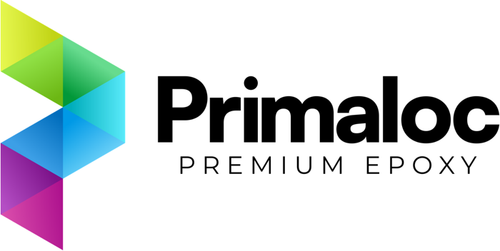Epoxy resin finishes have become a regular feature in many homes, restaurants, and other commercial locations. Epoxy resin is also used in all kinds of art and decor, as well as a variety of other DIY projects.
The long surge of increasing interest in epoxy resin over the past 20 years has led to many newcomers with little familiarity discovering the remarkable material.
As a result, we often receive questions about the safety of epoxy resin, both during a project as well as after it's finished.
In this article, we'll explain in detail just how safe epoxy resin is.
What Is Epoxy?
Let's start with the basics: what is epoxy resin?
Epoxy resin is a plastic that starts off as two separate liquid components. When these components are mixed together, an exothermic chemical reaction occurs, generating heat and causing the epoxy to cure.
As the epoxy cures, it attempts to bond with any materials in contact with it. If mixed and applied properly, the epoxy will gradually harden into an incredibly durable, crystal-clear, and super smooth material. This typically takes between 24 to 72 hours; the time varies based on the environmental conditions and the thickness of the epoxy.
Epoxy resin's unique features have made it a desirable option for table top, bar top, and countertop finishes, as well as a valued material for the creation of resin art.
How Safe Is Epoxy Resin?
Now that you understand the basics of epoxy, let's cover the topic of safety with epoxy resin. We'll split this topic into two sections.
The first section will be about uncured epoxy; the second will address cured epoxy. This distinction is important because there are some significant differences between the two states.
How Safe Is Uncured Epoxy?
Uncured epoxy is relatively safe to use, there are just a few basic precautions we encourage to help you avoid any problems.
When epoxy is in its liquid form as two separate components—resin and hardener—it can be messy if accidentally spilled. Thus, it's important to always keep the bottles sealed when they're not being used, and to measure and pour carefully into your mixing containers.
When the epoxy components have been mixed together and the curing process has begun, it may let off light fumes. These fumes can be a mild irritant, especially to people with respiratory issues, so we highly recommend wearing an N95 mask or respirator whenever you're working with epoxy.
Epoxy can also be a mild skin irritant to some people. The longer it remains in contact, the more likely it is to cause redness or a rash or something else minor yet nonetheless unpleasant. Therefore, we also recommend wearing nitrile gloves when using epoxy resin.
And finally, be certain to fully read the instructions written for your chosen brand of epoxy resin. They will have further details on anything specific to the corresponding product.
Remember: the Quality of Your Epoxy Resin Matters!
If an epoxy resin is subpar, produced with low-quality ingredients, it can cause unexpected problems and be a serious safety concern.
That's why it's important to use a premium epoxy such as our Primaloc Bar & Table Top Epoxy, which will ensure that the resin will work as intended without worrisome emissions or other issues.
To summarize, when working with epoxy resin:
- Wear an N95 or KN95 mask / respirator.
- Wear a pair of nitrile gloves (latex is not as effective, but can serve in a pinch).
- Use a high-quality epoxy resin.
- Fully read the instruction for your chosen epoxy brand.
How Safe Is Cured Epoxy?
Cured epoxy is much less of a concern than uncured epoxy. Once the curing process is complete, the resin will stop generating heat and become inert, behaving just like any other plastic material, but with much higher resilience.
At this point, skin contact shouldn't cause any issues, even for those with a sensitivity. Additionally, cured epoxy surfaces are also food safe, meaning that food can rest on them without being contaminated by the epoxy—which doesn't mean there aren't germs, so always keep your food surfaces clean!
That said, you shouldn't prepare food on the epoxy. It may be highly resistant to impacts and scratching, but it can still be cut by sharp knives or damaged by intense heat.
Another upside to epoxy resin is the ease with which you can clean it. Simply wiping it down with a mild soap and warm water is usually enough to clear the surface and sanitize it.
Epoxy Resin Is Safe
Ultimately, epoxy resin is a safe material to work with and interact with. When in its liquid form, basic precautions like gloves and a mask are adequate protection. Once it's cured, there are essentially no health risks to regular usage, as it becomes food safe, inert with no emissions, and rock-solid.
Primaloc Epoxy: Premium Epoxy for Premium Results
When it comes to epoxy resin, Primaloc Epoxy gets the job done. Our epoxy resin is premium-grade, with high performance in every category, and is easy to apply and completely safe once cured.
Epoxy resin can be beautiful, strong, and long-lasting—which is why you shouldn't compromise on quality. With Primaloc Epoxy Resin, you get the ultimate finish in durability and visual appeal.
Protect your surfaces by giving them a rock-solid epoxy finish. Choose strong. Choose reliable. Choose Primaloc.



